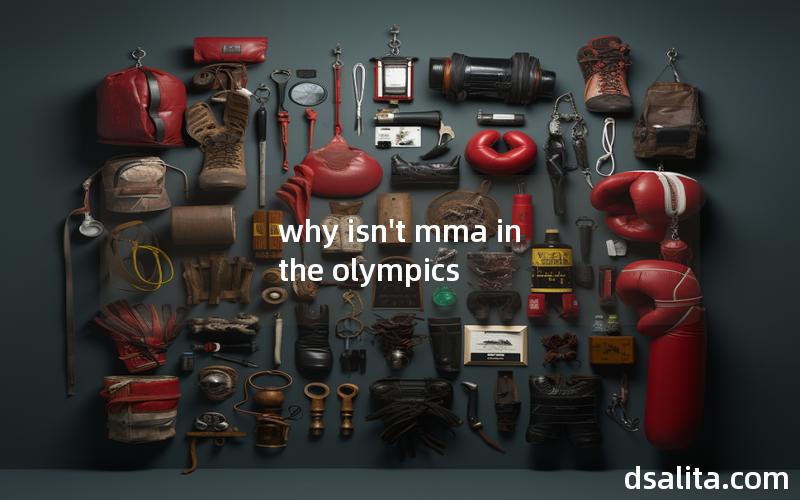Why Isn’t MMA in the Olympics?
Mixed Martial Arts (MMA) has gained immense popularity worldwide, with millions of fans and professional fighters showcasing their skills in various organizations. Despite its growing popularity, MMA is not yet included in the Olympic Games. This article aims to explore the reasons behind this exclusion from multiple perspectives.
Lack of Global Standardization
One of the primary reasons why MMA is not in the Olympics is the lack of global standardization in the sport. Unlike traditional Olympic sports, MMA does not have a universally accepted set of rules and regulations. Different organizations have their own rule sets, weight classes, and scoring systems. This lack of standardization makes it difficult for the International Olympic Committee (IOC) to include MMA as an Olympic sport.
Moreover, MMA’s violent nature and the use of techniques like striking, grappling, and submissions raise concerns about athlete safety. The IOC prioritizes the well-being of athletes and may hesitate to include a sport that is perceived as excessively violent.
Public Perception and Image
MMA’s image as a brutal and violent sport has also played a role in its exclusion from the Olympics. Many people still associate MMA with street fighting and view it as a dangerous and uncivilized activity. The IOC aims to promote values such as fair play, respect, and sportsmanship, and MMA’s reputation may not align with these ideals in the eyes of the public.
Additionally, the presence of controversial incidents during MMA events, such as pre-fight trash talking, post-fight brawls, and the occasional use of performance-enhancing drugs by fighters, has further tarnished the sport’s image. The IOC may be hesitant to associate itself with a sport that faces such negative public perception.
Difficulty in Implementing Anti-Doping Measures
Ensuring a level playing field for all athletes is crucial in the Olympic Games. However, MMA’s decentralized structure and lack of universal regulations make it challenging to implement effective anti-doping measures. Different organizations have different testing protocols, and the absence of a centralized governing body makes it difficult to enforce consistent drug testing policies. The IOC may be reluctant to include a sport in the Olympics that struggles to maintain a clean and fair competition environment.
Commercial Interests and Broadcast Rights
The Olympic Games are a massive commercial enterprise, and the IOC relies heavily on revenue generated from broadcasting rights and sponsorships. Including MMA in the Olympics would require negotiations with various MMA organizations and broadcasters, potentially disrupting existing agreements. The financial aspects and commercial interests involved in incorporating MMA into the Olympic program may be a significant barrier to its inclusion.
Resistance from Traditional Combat Sports
The inclusion of MMA in the Olympics could also face resistance from traditional combat sports such as boxing, judo, and taekwondo. These sports have a long-standing history in the Olympic Games and may perceive MMA as a threat to their prominence and resources. The IOC must carefully consider the potential impact on existing Olympic sports before introducing a new discipline like MMA.
Complexity of Weight Classes and Athlete Categorization
MMA encompasses a wide range of weight classes, each requiring skilled athletes with specific body types and training regimens. The inclusion of MMA in the Olympics would necessitate the establishment of weight classes and athlete categorization systems, which could be challenging to implement. The IOC may be hesitant to introduce a sport that requires significant logistical considerations.
Long-Term Viability and Sustainability
The IOC evaluates sports for Olympic inclusion based on their long-term viability and sustainability. MMA’s popularity has surged in recent years, but its long-term future is uncertain. The IOC may want to ensure that a sport has a stable and sustainable foundation before including it in the Olympic program.
Conclusion
While MMA continues to captivate audiences worldwide, its exclusion from the Olympic Games can be attributed to factors such as the lack of global standardization, public perception, difficulty in implementing anti-doping measures, commercial interests, resistance from traditional combat sports, complexity of weight classes, and long-term viability concerns. For MMA to be considered for Olympic inclusion, these challenges must be addressed, and the sport must align with the values and goals of the Olympic movement.


 Dsalita Boxing
Dsalita Boxing






